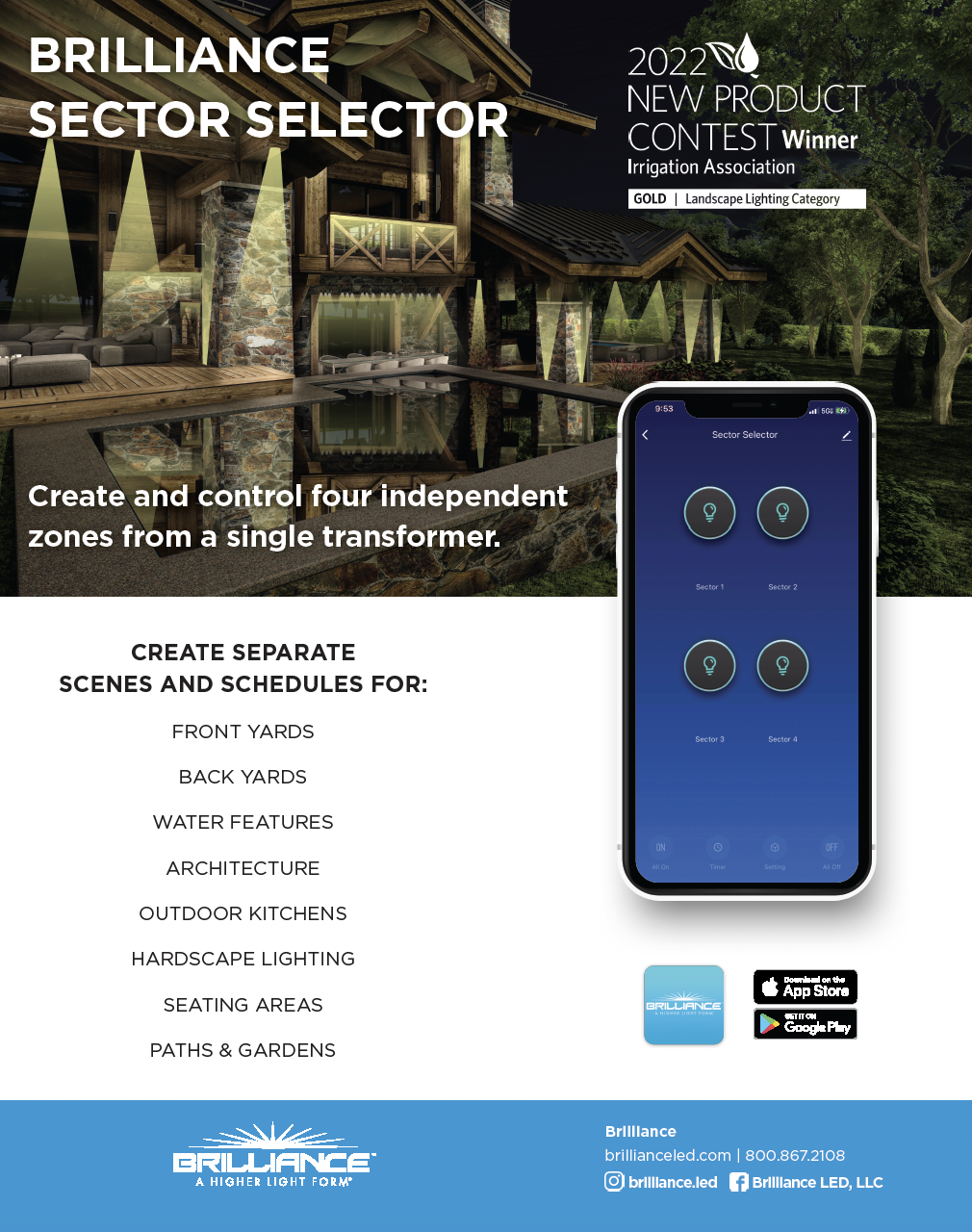
5 minute read
Q+A
Q+A: What Does Sustainability Mean to You & How You Conduct Your Business?

Naylor Taliaferro Founder of LCR Media & Clean Cut Lawn Care Services Midlothian, Virginia
Sustainability has become a buzzword in almost every industry, and the landscaping and lawncare industry is no exception. However, it is not enough to merely talk about sustainability; it requires practical action to achieve it. Education and collaboration are the keys to achieving sustainability in this industry.
In my lawncare company, for example, I believe that education and collaboration are the cornerstones of sustainability. I ensure that I am well-informed about all aspects of my company’s services and collaborate with other companies that provide services that I don’t for better understanding.
This approach not only helps my company provide high-quality and sustainable services, but also fosters a culture of sustainability within the industry. When companies work together and share their knowledge, they can develop new ideas and best practices that can benefit the entire industry.
Furthermore, educating customers about sustainable lawncare practices is crucial. The more customers are aware of the impact their actions have on the environment, the more likely they are to make sustainable choices. I understand this and actively educate my customers about sustainable lawncare practices.
In conclusion, the path to sustainability in the landscaping and lawncare industry begins with education and collaboration. By sharing knowledge and working together, companies can create a sustainable future for the industry and the planet as a whole.

Jamie Rosenthal, CEO of Roots Down Decatur, Georgia
True sustainability is moving with the patterns of nature and not against it. It means being good stewards of nature and finding innovative ways to make profits. At Roots Down, we take Earth care very seriously and make sure to inspire and educate everyone we come into contact with. Not only do we help local governments, developers and landscapers grow greener and more sustainable landscapes, but we also hold free, public education seminars about land stewardship and good ecological practices. Our suggestion for the industry is to look closely at the market trends around more environmentally friendly options. With millions of acres under management, the landscaping industry has a huge opportunity to help grow a more abundant, beautiful and sustainable future. Let’s imagine the possibilities of our landscapes and embrace our role in cultivating environmental sustainability.

Carita Koen Owner of Green Magic Landscapes Mobile, Alabama
Sustainability means doing business in which your company positively impacts the community and the environment. The growth opportunities for a business to continuously increase their revenue are based on the relationships and the connections made while effectively competing in the marketplace. Our belief is that the longevity of any business is creating a great experience with customers, increased community involvement, understanding and coping with industry trends and, most importantly, doing business by the numbers.
Suggestions for the industry:
1. Always be open and ready to pivot and adjust to the market's latest trend.
2. Know your numbers and make financial decisions based on those numbers.
3. Communication is key! Develop ways to embrace technology to engage, communicate and wow your customers.
4. Make sure that your systems are in place. The more that you can integrate, automate and delegate, the better life will be.
5. Remember to give back, whether it's monetary or volunteerism of time. Get involved, do good and give more!
6. Mentorship is imperative to success.

Mary Kay Woodworth, Executive Director of Georgia Urban Ag Council in Atlanta, Georgia
For the landscape industry, one definition is “sustainable landscaping is the practice of using multiple strategies to create an environmentally friendly and climate appropriate landscape.” This includes employment of best management practices to reduce inputs; appropriate plant selection depending on climate, rainfall, light and topography; and design/maintenance to avoid water waste and runoff. Equipment selection and use is also important, as the adoption of electric over gas-powered tools will continue to increase as technology improves—but it will take time. Sustainability is also about keeping your business healthy, productive and profitable and open communication with your employees and clients.

Jason Coultas, Chief Collaborator at Huckleberry Enterprises in Woodstock, Georgia
My experience tells me that the marketplace is not truly committed to green initiatives. Let’s face it, we all have conflicting values. We want to do what’s best for the environment, but we also want nice things and we don’t want to pay more. Just like we want to “eat clean” but love our vices.
As an industry, we follow the lead of the clients that we serve. If they demand a green solution, we will certainly respond! Bu t what I see is that the desire for sustainability is secondary to other values. And until that shifts in our culture, we will continue to employ standard practices.
We would do well to create an organized industry approach that will lead our communities forward. The reality is that if we don ’t, the government will demand it of us. They will not develop these rules in partnership with us. They will likely bring harsh require ments to us without our involvement. If we are proactive, we may avoid being forced into rules that push us into deep restrictions.











